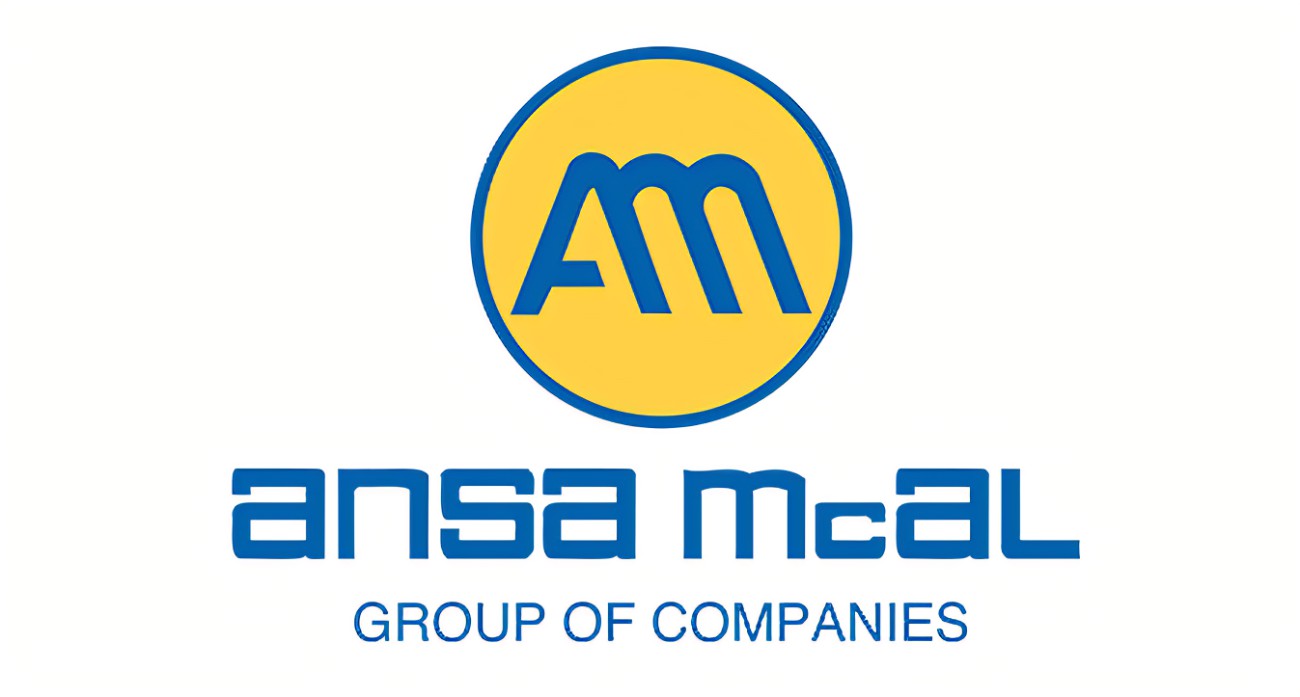


Mr. David Inglefield – Sector Head, Services and Media
One of ANSA McAL Group’s most experienced executives has returned home after successfully stabilising the group’s operations in Barbados. So what’s next for David G Inglefield? Billed by his colleagues as entrepreneurial, a progressive thinker and a change advocate, David G Inglefield, or “DGI” as he is sometimes referred, is the ANSA McAL Group’s new Sector Head of Media, Retail and Services. He is, therefore, the man tasked by the conglomerate’s board with the transformation of the retail, services and the media companies. Inglefield is brimming with new ideas to build on the work of his predecessors. He assumed these two positions on the August 1.
Having just returned from a successful stint in Barbados as president and chief executive officer, ANSA McAL (Barbados) Ltd, Inglefield was responsible for the nine operating companies in the Barbados Group for the last four and a half years. An upbeat Inglefield spoke to the Business Guardian two Tuesdays ago at his 11th floor office in the Tatil Building, Maraval Road, Port-of-Spain. He spoke with the confidence that his experience in Barbados had prepared him for the positions he now holds. “In Barbados, there is a mix of companies with everything from automotive to finance to retail and distribution,” he said. “I am quite familiar with the media sector and I have had previous experience with it as a member of the Trinidad Publishing Company board and as chairman of the radio board. So that’s a good fit for me, even though the media landscape has changed quite a bit in the last few years…I hit the ground running,” he said.
He noted that the two sectors are very different in that whereas he has a working knowledge of media, the learning curve in the retail and services sector will be a lot steeper. “Challenge has always energised me. It’s an opportunity to learn something new and contribute to the success of the sector, but I am lucky; we have some great teams in both these sectors.”
Retail and services sectors
The retail and services sector in the ANSA McAL Group comprises MBM, Alstons Shipping Ltd, ANSA Technologies Ltd, Alstons Travel, Standard Equipment Ltd and Crown Industries Ltd, and three companies in Barbados, Trimart Supermarkets, Brydens Retail Inc and Brydens Xpress Inc. The operations of ANSA McAL USA also come under Inglefield’s responsibility. He believes that although the world and the Caribbean region are in a challenged economic climate and will be for at least the next few years, there are opportunities for growth in the service sector companies. “Generally, the economy in T&T and, particularly, the private sector, is production-driven, and service as a component of the average business model is not very well developed. This is a significant opportunity for companies that have focused on supply and price and not leveraged the service component of their customer interaction.”
Inglefield said some of ANSA McAL companies have an opportunity to grow.
“In the services sector, companies like ANSA Technologies that are aligned to the activities of the energy sector, have gone through a challenging time because of the decline of the overall economy and the effect on the energy sector. “We have some catching up to do, our product portfolio has shifted and our customers now want a stronger level of support and, yes, service; it’s not only about price. “Companies in that sector have operated in traditional supplier manner for a while. There’s huge opportunity to take these companies from where they are to full supply and service specialists.” Speaking about the management model, Inglefield said the sector has been managing al ong traditional lines of business very well, and pointed out that overall, the ANSA McAL Group continues to deliver good performance and shareholder value in spite of difficult market conditions.
“The market and customer expectations are changing fast. Our competition is evolving and we have embraced this change and are committed to adapt at a faster rate to stay ahead. That’s our challenge.
“ANSA Technologies now has an opportunity to move into the service part of the business instead of just selling pipes and energy sector supplies.” Inglefield said the group is committed to a customer-first focus as a key component of its business strategy to remain competitive and that this is embedded in the group’s core values statement that is posted in offices and production plants throughout the group.
“The group has invested heavily in information technology solutions in most of its sectors as well as an enterprise resource planning system across the group to drive efficiencies and improve our customer knowledge and service delivery. “In the services sector, we must look to satisfy our customers at a higher level. We must benchmark on international standards. Remember, with technology today, customers can shop worldwide,” Inglefield stressed.
He said companies in the group are lifting their game to satisfy customers. “When the market becomes price sensitive, the decision-making is purely price-driven. If your service component of your business is not strong, you are destined to become part of that limbo contest for price. Long-term, it’s very difficult to maintain, especially in an inflationary environment. This applies to MBM, Alstons Shipping, our retail businesses and the other companies in the sector. “In the group, our sectors are lifting our levels of customer satisfaction to a point where we are more relationship-driven rather than transactional-driven.”
External markets
An overwhelming percentage of T&T manufactured products is exported to Caricom and, during this recession, the region has been negatively affected. “This is not good.” “About 75 per cent of our manufacturing production in T&T is sold to the Caricom countries. We are a sort of Germany of the Caribbean. We need healthy customers and there are not a lot of healthy customers in Caricom right now. So the battle is for market share where we have potential to expand. “We also need to look beyond our traditional Caricom markets. No, I don’t see much market growth in the T&T market in the immediate future, but I do see the opportunity for the group to grow market share in many of its sectors.” Inglefield said the group in always searching for new markets. Apart from looking outside of Caricom, the group is also looking at areas in Caricom that it has not fully developed.
“We are not really in Jamaica. Although we do have good business and distribution relationships in that market and we do have an interest in a company in Jamaica, we are in the process of developing our portfolio in this market. There are also other countries in the region that have good potential that we can do business in.” Inglefield pointed to possible markets outside of Caricom. “The ANSA McAL Group has always done well in good times as well as in difficult market conditions. We have a very strong balance sheet, excellent governance and very robust management structures. This and a large cadre of experienced professionals at all levels carry us through the difficult times.”
Media sector
Inglefield, who has had prior experience in the media, wants to further modernise the media sector and build new relationships with customers, viewers, readers and listeners. “One of the things we need to focus on is our customers. These are the advertisers who buy time and space from the Guardian Media Group as well as readers, viewers and listeners, no matter how they chose to access our products. We are in the information and entertainment business and our audience is not static. People, especially the younger segment, are very mobile and have tremendous choice of how they access information and entertainment.” One part of Inglefield’s plan is to change the old way of doing things. “Media companies can’t rely on traditional delivery systems. For a large section of the population, they have become irrelevant. You are going to see a step change in how we do what we do. That’s going to take a significant effort, but we have good people who are focused on success. There are areas of our business that is very well developed and there are areas we will enhance and develop as well as enter new areas of the media market.
“There is a change in media, newspapers around the world are in decline. I think one of the reasons for the decline of readership in T&T is that we have not kept track of who our audience is. The demographics of consumers of media in this country have changed dramatically. The way we deliver this media to the market and the audience must also change.” Inglefield stressed the importance of the use of social media. “The social media network is very under developed in T&T in general. There are some companies who have done a good job on Facebook and so on. From a news, current affairs, social issues point of view, I don’t think you see a strong presence there. We saw the potential when during the last elections, we received thousands of hits and texts on our Web site within one hour. We got the message and are investing in this future now.
“There is no question our audience has changed, the demographics of this audience has also changed. It’s our job to listen to the conversation of our younger audience and understand how to join that conversation. It’s not just print, TV and radio; it’s all forms of communication. “If you look at our media—we just bought Slam Radio—and if you look at our printed publication, you would see the whole format evolving. The additional publications that we produce are targeted to specific segments of the population. That’s one way we reach a wider audience.”
The future of TV
Within the rapidly evolving and changing media environment, Inglefield believes that CNC3 television station must find and own its niche. “We have a big investment in CNC3. We were granted free-to-air licence not too long ago. That allows to reach a wider audience beyond cable. The important thing is to make it current and relevant in people’s lives. We have huge competition, not just from other local TV stations, but from cable TV, satellite and direct. The cable channels have over 100 choices. Is terrestrial TV destined to be relegated to the slot where people just tune in to us for news? I think not. We have too much invested in this business to accept that small piece of the pie. “The region is rich with diverse culture and natural resources that have not been developed as media products. There is so much material out there waiting to be taped.”
Inglefield said using the latest technology in social media is important. “If ten years ago I had told people that they would be able to read newspapers online and actually turn pages sitting at the beach eating bake and shark, who would have predicted that? So where are we going to be in the next five years? These are searching questions for media companies. By the way, the market, your audience, won’t wait around for you to respond.” Speaking about future acquisitions in the sectors he now manages, Inglefield said the group would examining any options that fit the strategic objectives of the sectors and add good people and real value to the overall business. “We are always looking for opportunities, and I’m sure in our business planning processes, there may be some opportunities that arise. These are great times to be in business, I see so much opportunity,” Inglefield said.
“We have some really strong leaders as well as some bright young hungry professionals in these sectors who will expect to be challenged. Personally, I get tremendous satisfaction helping people develop and grow in their careers and look forward to working and learning from the teams in both my sectors.”
Business Guardian
September 22, 2011













